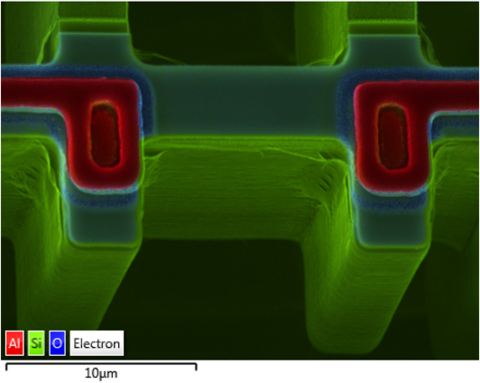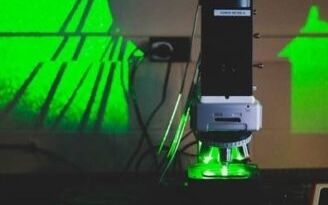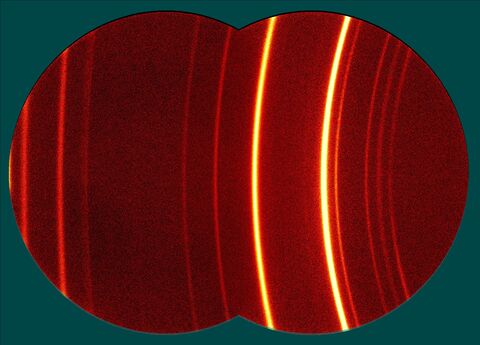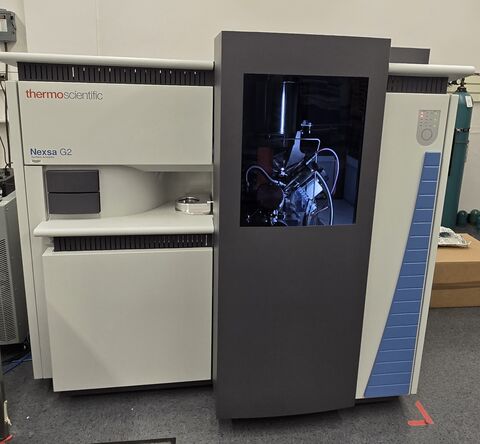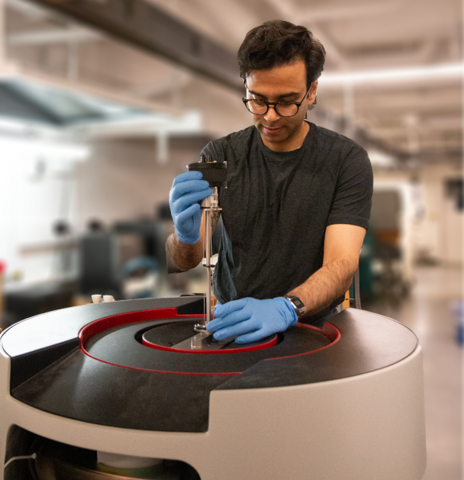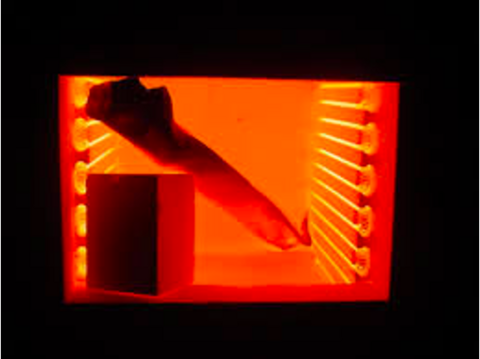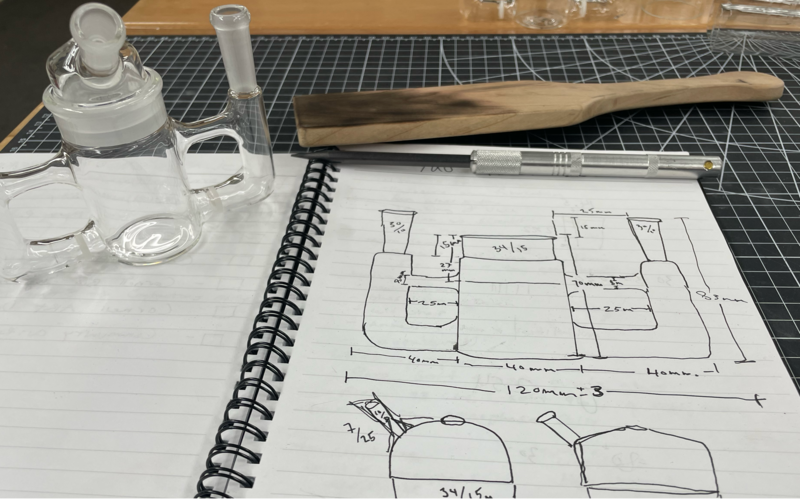Instruments
CCMR Instrument Categories
Imaging and Microscopy. The CCMR has many microscopes to image atom-scale and microscale features. Some instruments utilize electrons to image such as our scanning electron microscope (SEM) and transmission electron microscope (TEM) systems, and others use visible or invisible light. The CCMR also manages a suite of sample preparation tools for these imaging techniques.
Spectroscopy. Spectroscopy is the study of how radiation (X-rays, ultraviolet light (UV), visible light (Vis), infrared light (IR), electrons, etc. interact with materials. Spectroscopy typically provides a spectrum that can be analyzed for material characteristics at various wavelengths, angles, and temperatures. In some cases, the spectroscopy is combined with a microscope so that the characteristics can be imaged. If you want to know what wavelengths can pass through or are absorbed by your material, you might use our Cary UV-Vis-NIR spectrometer. To characterize the vibrational modes of organic matter in your sample and see where they are, you might use one of our Fourier transform infrared (FTIR) instruments or confocal Raman microscopes.
X-Ray Diffraction. Characterize the structure and composition of single and polycrystalline materials with our X-ray diffraction (XRD) and analysis instrumentation. Insights into strain, grain size, phase, and preferred orientation in powders, wafers, machined parts, and more is possible with our Bruker diffractometers. Perform high-temperature XRD in air or vacuum and determine thin film thickness, roughness, and density parameters with our Rigaku Smartlab XRD.
Surface Analysis. The analysis and characterization of the very surface or top few layers of atoms on a surface can be crucial when performance relies on the surface features, structures, composition or chemistry. Surface features can be imaged using contact or non-contact profilometry or scanned probe techniques, and depending on the scale of the probe tip or light being used, nano- and micro-scale features can be easily seen. X-ray photoelectron spectroscopy (XPS) can provide a wealth of information about surface composition and chemistry.
Material Property Characterization. Probe thermal, electronic, and physical material properties including structure, strength, and magnetism. If you need to know how strong your sample is at varying temperatures or loads, you might use our TA Instruments dynamic mechanical analyzer or rheometer. Study how a material behaves or degrades with temperature and quantify polymer crystallinity with our TA Instruments Thermogravimetric Analyzer (TGA) and Differential Scanning Calorimeter (DSC). Electronic and magnetic properties can be characterized in our probe systems and our Quantum Design physical property measurement system (PPMS) instruments can easily vary temperature and magnetic field to probe a sample for superconductivity, magnetism, or other properties.
Mass Spectrometry and Nuclear Magnetic Resonance. CCMR and other Cornell facilities operate several mass spectrometry and nuclear magnetic resonance (NMR) instruments for trace element, molecular, and polymer analysis. CCMR manages a Bruker Autoflex MALDI-TOF MS (Matrix-Assisted Laser Desorption/Ionization Time-of-Flight Mass Spectrometer) for identification of polymer chain masses via laser ablation, and liquid or solid samples can be separated and analyzed using our Waters Ambient Temperature Gel Permeation Chromatography (GPC) instruments.
Sample Processing. Sample performance can be highly dependent upon how the sample is made and how it is handled, treated, and processed. The CCMR has a wide range of instruments for various purposes such as film deposition tools, controlled-atmosphere furnaces, cutting/polishing instruments, presses, mills, wire bonders, glove boxes, and more.
Instrument Lending Library. The CCMR maintains a library of test equipment that can be borrowed for use within the facility or in users' own labs. This can be ideal if you don't have a piece of equipment yet but want to test it, if you have an instrument that has failed, or if you need to test equipment for a short period of time. Available equipment includes vacuum pumps, helium leak detectors, sensitive voltage meters and generators, lock-in amplifiers, oscilloscopes, and more. Click above for a full list.
Glass Shop. The CCMR also operates a scientific glass shop which is critical for consultations and custom fabricated glassware. Considerable cost savings can also be realized by repairing broken glassware or having items fabricated rather than purchasing pre-fabricated components.

